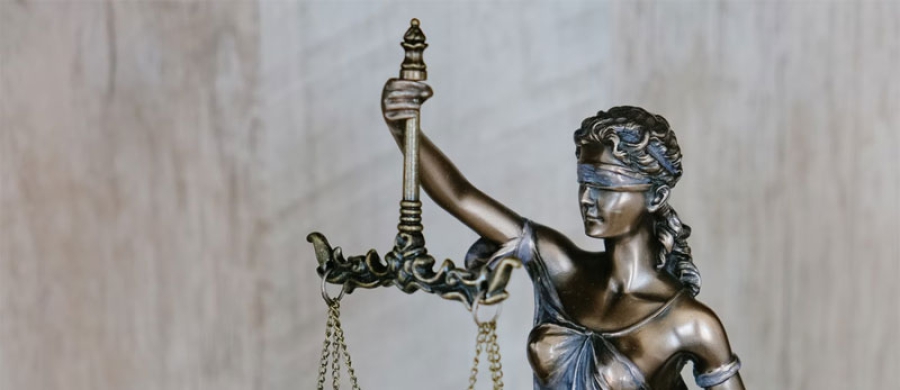QP9
Before deciding how to plead, you should, at the very least, read the police QP9. The QP9 is the name of the document police use to inform you of the case against you, at least at the initial stages. It will normally contain:
- The charges,
- A summary of the alleged facts,
- Alleged criminal history (if there is any),
- And sometimes, but not always, a summary of the evidence the police have in their possession.
This way, you get to understand what you are charged with and why.
In Queensland, the police are not obliged to share with you all the evidence they possess if your matter will be heard in the Magistrates Court, until you plead “not guilty”. However, it is possible to get a good idea of the evidence the police might have, even if you do not get it all. To make this call, you should seek legal advice of one of our experienced lawyers. For greater detail concerning QP9s check out our blog article.
How to decide whether to plead guilty or not guilty?
The first question is, are you actually guilty?
The vast majority of criminal cases in Queensland end by the accused pleading guilty, however, police do get it wrong. If you believe you are not guilty, then it is your legal right to plead not guilty and no one is allowed to put pressure on you to decide otherwise.
In some cases, your innocence will be obvious; you may be charged with a burglary in Ipswich, but you were at a birthday party with 10 other people in Brisbane at the time police say it happened. They clearly have the wrong person.
Some cases, however, are borderline, and you may be unsure of whether you are guilty at law. A typical example may be when someone is accused of breaching a domestic violence order. The order says you are not allowed to commit domestic violence against a protected person. You have an argument with the protected person and the police are called. You are charged with breaching a domestic violence order. The police say you have breached because you called the protected person a “bitch”. Is this a breach of the order? The advice of an experienced lawyer can help you in such a situation.
Bear in mind, you are not obligated to plead guilty just because you are. Occasionally, people like to ‘have a crack’. If that is so, making the prosecution prove their case beyond reasonable doubt is still a viable defence.
The second question to consider when deciding whether to plead guilty or not guilty is, how strong is the evidence?
Our system of justice, (when it is working well) requires the police to be able to prove the charges alleged against you using evidence. Evidence can take many forms, some of the most well-known are: witnesses, forensics (fingerprints and DNA), CCTV, text messages and interviews with the accused.
Police evidence gathered efforts will be highly dependent on the charge; police will generally use all evidence gathering methods at their disposal when someone has been killed but may only get a statement or two if it is a DVO breach.
Once police are satisfied they have enough evidence to lay a charge, they will generally place the accused person under arrest and ask if they want to be interviewed. If police ask you this, please, just say no. What you say in an interview can be some of the most persuasive evidence police have at their disposal. See linked article explaining why.
The reason it is so important to assess the strength of the evidence is because it may be possible to get a guilty person ‘off’. It is not good enough for police to be suspicious someone committed an offence, or believe they committed an offence, police must be able to prove it.
For example, I had a case where my client was accused of burgling a house. The only evidence the police had against my client was a cider can from within the residence with my client’s DNA on it. There were no witnesses or anything else to indicate she was there. She pleaded not guilty and the prosecution ended up dropping the charge before trial. This is because a can is a ‘movable object’ and the prosecution could not exclude the possibility that someone moved the can inside the house after my client had touched it (there were also other cans inside the house that did not have my client’s DNA on them). This is a case where my client may have been guilty (I am not saying she was, of course!) but the police simply could not prove it according to law.
What are the benefits of pleading guilty?
So, you have considered with your lawyer whether you are guilty and the strength of the evidence, and you have decided you will probably plead guilty. What are some of the advantages?
- You should expect to receive a less severe penalty if you plead guilty.
- The earlier in the process you plead guilty or indicate a plea of guilty, the more benefit you should get. For example, you may get a lower fine, shorter probation period, or no jail time instead of jail time.
- Pleading guilty tends to shorten the legal process, especially in the Magistrates Court, and “get it out of the way”.
- In our experience, a lot of clients find the stress of criminal charges hanging over their heads unbearable. If you plead not guilty, it will generally require around two more court attendances, and it will usually be months after your first court date before you can get a trial in the Magistrates Court.
- It costs less.
- We work on a fixed fee basis. If we are doing a plea of guilty, you should not expect to pay any more than the fee quoted. If you plead not guilty, however, it requires much more preparation on our part, and we will usually recommend you engage a barrister, which incurs additional costs as well.
What are the disadvantages of pleading guilty?
- You lose the opportunity to be found not guilty and receive no punishment.
- In a case where the expected penalty may be very severe even if you do plead guilty (such as rape), you may decide it is worth “taking your chances” in a trial.
- Depending on the seriousness of the offence and your criminal history, you may have a conviction recorded against you, which may influence current or future work and travel opportunities.
Do I have any other options?
Yes, there is a middle option. It is called a submission. This is where we write to the prosecutors (the people who present the police case in court) and ask them to drop either all the charges, some of the charges, or amend the charges.
An example of dropping some charges is as follows. You may be charged with drug possession and possession of tainted property. The tainted property charge concerns cash you had in your possession when you were charged with possessing the drug. If you could provide evidence the cash was actually from a ‘cashie’ job you did the previous week, then we could write to the prosecutors, provide that evidence, and argue they should drop the charge. Then there would only be the drug possession charge left.
An example of amending a charge is as follows. Suppose you are charged with stalking with violence. That offence carries a maximum penalty of 7 years and is commonly punished with a term of imprisonment. We would write a submission to the prosecution arguing they should amend the charge to stalking ‘simpliciter’, meaning they drop the ‘violence’ part. The charge then carries a maximum penalty of 5 years and there is now a much better chance of staying out of prison.
What kind of penalty will I get?
No two cases are ever the same. To give you a true idea of what punishment you may receive you need to speak to a lawyer, however, check out our penalty guide here for more detail on the available punishments.
Conclusion
There is a lot to think about when making a decision about how to plead. We certainly recommend you do not make the decision alone. Even for a ‘minor’ drug possession offence, the consequences to you could be quite severe if things go wrong in court. Contact our office and we can provide expert advice at this difficult time in your life.







